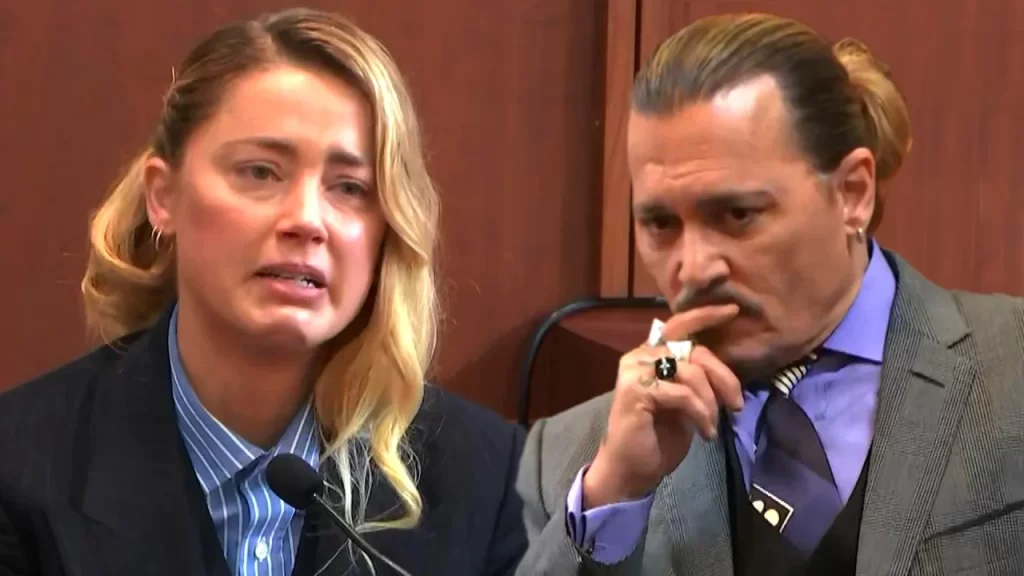Blog

Why is Johnny Depp’s trial so important?
Etel Leit
Johnny Depp’s trial is setting the tone and set an example for millions of people in the world. Are you following? If you follow my reels, I post many on what is an abusive relationship and how people get trapped in obsession over them. Many make the mistake of assuming that the victims are always women. As a man in the public eye, there’s more pressure to “be a man.” It is harder to come out and say “I am a victim of abuse” as a man in general, but unbelievably harder when the whole world is watching.
However, this specific scenario can become very complicated since the abuse in their relationship seems to have gone both ways. The importance of Johnny Depp admitting to being both a perpetrator and a victim of domestic violence cannot be ignored. Regardless of sex or gender identity, regardless of economic status, or education level, anyone can be a victim of domestic violence. So why do so many men have trouble getting help?
Why is it so different for men?
When it comes to physical abuse of men, the most common confusion for people comes down to size. “You’re bigger than her, just make her stop” is not a solution to the problem and will likely only exacerbate the situation. Furthermore, Men don’t report abuse as often as women because they often suffer gender stereotyping if they do. Even from professionals! The social stigma surrounding what it means to “be a man” is creating a dangerous world for men to live in.
We as people need to become more accepting of men who do not “fit the mold.” Men are humans. They have emotions, they have bodies, and they can be abused. Men can be victimized, and in order to make the world more equitable, we need to destigmatize the vulnerable parts of being a man. If you only take one thing away from all of this, please let it be this; Men can be victims too. It is not unusual, and it doesn’t make them any less of a man.
What constitutes an abusive relationship?
Johnny Depp’s trial is also bringing the nature of abusive relationships to the attention of many people who may not have thought about it before. Abuse comes in many forms. Abuse can be emotional, financial, verbal, sexual, psychological, and of course, physical. Abusive relationships involve a pattern of abusive behaviors used to maintain power and control over a partner. Abusers use threats, isolation, manipulation, and intimidation to gain and maintain control of their partners.
Abusers do not begin relationships by being abusive. They often lure their partner into the relationship by going above and beyond expectations to create trust and slowly become abusive over time. Abuse almost always escalates.
Why people don’t “just leave”
When it comes to providing love, the importance of father figures is undeniable! Oftentimes kids can fear an angry lecture from parents or a strict silent treatment. This sort of fear leads to issues with trust, abandonment or even attachment. However, by providing unconditional love and comfort, father figures greatly lessen a child’s anxiety. This includes anxiety about parental relationships and love overall. Even doing simple things like making time for kids, or engaging in playtime are huge to challenging anxiety! This unconditional love then go’s on to foster healthy relationships in this child’s adult life.
Leaving an abusive relationship is not as simple as people might think. As we have seen in Johnny Depp’s trial, there are many complicating factors that make leaving difficult. The victims often fear what their abuser might do to them or their loved ones if they leave. They may not have anywhere to go, and they may not have the means to leave.
On my Instagram, I asked the question, “Why do you think people don’t leave an abusive relationship?” Here are some of the answers:
“They don’t believe they deserve better.”
“Because they still love their partner.”
“Because they feel stuck and keep hoping the relationship will get good again.”
“They are brainwashed to believe they can’t survive without the abuser.”
“Sometimes they are stuck. No idea how to get out, and they put their kids’ happiness first.”
“Manipulators are quite good at pressing on insecurities and the fear of being alone.”
“Low self-esteem.”
“Codependency.”
“They lack a sense of self.”
“The fear of the breakup and what the abusive partner might do or has threatened to do.”
“Nostalgia about good times in the relationship.”
“Our brains get addicted to all the adrenaline so I think that makes it hard to leave too.”
“Because they feel it is all they deserve, and they have very low self-esteem.”
“Hope for change.”
Some of the difficulty comes from within the victim. Abusers have a way of breaking down one’s self-esteem and confidence to almost nothing to keep their victim around. If someone feels as though they deserve the abuse or they have no confidence in their ability to survive on their own, it will only further complicate their ability to leave. They may not even want to.
What can we do about it?
Living in a toxic, abusive relationship? Not sure what to do next? In my work, I teach that it takes time. Let’s start with the 3 A’s, which will help you determine if you are in a dysfunctional relationship, accept it and then take the action you need.
The 3 A’s:
Awareness
Acknowledge that the relationship you are in has become abusive in any form. Not strictly physical
Acceptance
Accept that the relationship will never go back to the way it was before and you need to put yourself and your safety first.
Action
Making the move to leave. Of course it can be dangerous, but there is always someone out there to help you.
Leaving an abusive relationship is not black and white. If you or anyone you know is in an abusive relationship, please reach out to any of the resources provided below.
- 1-800-799-7233 or 1-800-787-3224 (TTY for Deaf/Hard of Hearing)
- https://www.thehotline.org/
- https://www.onlinemswprograms.com/resources/supporting-survivors-domestic-violence-resources/
- http://stoprelationshipabuse.org/educated/what-is-relationship-abuse/
- https://dretelleit.com/



